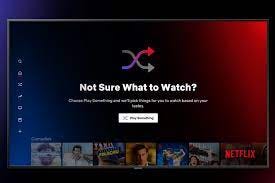How to Attack the Data Aggregators (DIMO)
Facebook, Marx's labor theory and a revolutionary approach to the data economy.
All the Data in the World
My Facebook interviewer once asked me, “If you could have access to all of Facebook’s data, what would you want to know about humanity?”
Set aside the Orwellian critique for a moment. Instead, think about the space of questions that you could answer. The scale of Facebook’s data operation is mind boggling. Facebook has data on almost half of the world's population -- more if you exclude China. They know your relationships, your content preferences, your biography and your commercial intent. Only Google rivals Meta in its data capabilities. Collectively, they hold the greatest store of human data ever accumulated.
From a sociological standpoint, the data is a goldmine. From a business standpoint, the data is … well… a goldmine.
I think a lot of the "data mining" critique is foolish. Having data is neither good nor bad. It's a tool. And, dear reader, I assure you that you enjoy its benefits. Social data helps Facebook to show you photos of your niece and not of your high school ex. Google Search might be the single most effective small business growth engine ever invented. Viewing data helped Netflix understand tastes well enough to develop your favorite show.
But data is powerful. It is also lucrative. "Who gets to benefit from our data?" is an important question.
So far the answer has necessarily been "large companies." Data is only useful in aggregate. So it is only through building a service for millions that a business can profit from data. This, of course, is because Facebook does not pay you for your data.
But what if they did? Sounds farfetched, I know.
But DAOs are proving that compensating users can make business sense. If data producers create value, they should be both rewarded for and consulted on their data.
DIMO is a company that has already started testing this thesis. But to understand what they're doing and why it could work, we first need a bit of economic history.
Mark, Marx and a Theory of Surplus Data
(A quick explanatory note: I’m going to focus on Facebook here because I know it best, not because they are especially guilty. Everything I will say is equally valid when applied to Google, TikTok, Amazon and even Apple.)
Facebook, and other internet companies, often talk about a value exchange. This concept is simple in principle. Facebook provides a service that requires your data to operate well. You find that service valuable enough to let Facebook have your data. Facebook, in turn, profits from the use of that data to serve relevant ads.
I can hear the voice of my libertarian friends: "Yes! That’s a free exchange freely chosen by both parties! That’s how markets work!”
And, y’know, fair enough.
But classical economics is a necessarily reductive model. It ignores some pretty important realities. To understand what’s missing here we’re going to turn to an economist both celebrated and reviled.
Yes, dear reader, it’s time to talk about Karl Marx.
Communism may be fatally flawed. But Karl had profound insights about markets. He saw how power imbalances distort fair and free trade.
Marx wrote in the 1840s as the first wave of industrialization gripped Europe. According to Adam Smith's Invisible Hand, the laborers of Europe should be benefitting from a free market. A worker should have had many options to ply their trade in a factory. Competition to hire these workers would lead to rising wages. Eventually workers would capture the full-market value that they created.
But that wasn't happening. Instead, laborers were being paid 10-20% of the value that they were creating for factory owners. Karl wanted to understand why.
There were so many laborers and relatively few factories. Marx saw this as inevitable. So as a result, the supply of labor vastly exceeded factory owner's demand. Workers had no choice but to sell their labor for less than its productive value. The factory owner, in turn, was able to capture the entire surplus value of labor.
Today, we see a similar problem arising for data producers (or, as we call them, people).
An individual user's data is not particularly valuable to Google or Facebook. So they have no interest in negotiating its "fair value" with me. Instead they offer a simple deal:
If I want to use Instagram, I need to let Facebook know who I am, who I care about and which content I like.
If I want to use Google Maps or Waze, I have to let Google know where I am so it can serve me local ads.
These companies are then free to use it to maximize profits by capturing the surplus value of my data.
Just how valuable is that really? Well, In 2021, Facebook turned this data into $46.7B in profits. Google turned it into $76B in profit.
The moats around these businesses are powerful. As Ben Thompson argues in his essay, Aggregation Theory, a super-platform like Google or Facebook is difficult to dislodge.
Marx noticed a similar trend. As the industrialists accrued profits, they traded their economic power with political power. They became entrenched aristocrats. They were free to continue extracting rents from regular people.
So are we cursed to let this play out? Are our only choices forfeiting our data for free or some kind of revolution?
Well, we could follow the European example and try aggressive regulation. Thompson explores the regulatory angle far better than I could here. You should check it out.
But I think there’s another path that is more promising.
As we saw during the pandemic, when employers have to compete, wages rise. We should be able to introduce a similar dynamic to our data markets. Facebook and Google are thus far the only game in town. But that's going to change.
The antidote to surveillance capitalism isn't socialism, it's real, free and competitive markets. And DIMO might be paving the way.
Meet DIMO
At first glance, DIMO does not seem like a competitor for Google or Facebook.
They are not a search engine.
They are not a social media platform.
But they are a trailblazer for a new kind of data aggregator.
DIMO is building a network of car and driving data. Its members use either a DIMO device (MSRP ~$350) or their phone to send information to the DIMO network.
Drivers can send location data, odometer data, battery performance and other vehicle diagnostics. This information is available to developers for a fee. In exchange for their data, the DIMO app offers users diagnostics and data visualizations about their vehicle.
So far, so Web2. This is the classic value exchange, after all.
But that's where the analogies to Facebook and Google breakdown.
The company does not claim the surplus value of your data. Instead, its users govern the data-sharing protocol.
Drivers receive rewards for their data in the form of $DIMO tokens. All drivers who show "proof of movement" receive tokens. Electric car drivers receive a premium. And drivers whose data is licensed by developers receive additional tokens at market-rate.
As in many web3 protocols, these tokens serve a dual purpose.
1. They work as governance tokens. They entitle the bearer to vote on issues affecting the protocol.
2. They are also “credits” for the DIMO network that developers need to build on the protocol. So, like Ethereum, the tokens have network value.
Over time, DIMO intends to issue 70% of all tokens to contributors. The platform (and the value it creates) will be controlled by the people that built it.
Somewhere in the great beyond, Karl is nodding approvingly.
“Now, hold on,” you might say, “that’s all well and good. But tokens are issued to early adopters. Those early adopters will thus command disproportionate influence over the protocol. In time they could extract rents for themselves. Thus they become data factory capitalists and our whole system starts over again.”
A shrewd observation, reader.
But DIMO’s solution to this trap is clever.
They have decoupled the data-sharing protocol from the rights to sell that data. Drivers will use DIMO to complete data transactions, but they are under no obligation to sell their data to a specific buyer. The protocol will support many buyers rather than being the sole buyer.
To achieve this decentralization, DIMO introduces the concept of Data Unions. Drivers will choose which Union to share their data with for licensing. If it easy to set up a new Union, as DIMO expects, drivers will have choices. This should allow them to fully capture the value of their data.
New Markets
A market with many differentiated data unions also opens new possibilities for exchange.
Facebook and Google are the single "data unions" in their data ecosystem. As a result, they collect the same data from all users and license its use via ads at the same rate to all buyers. Everyone gets the same service and gives up the same data.
But there's a missed opportunity here. People have different data preferences. I am comfortable with sharing a lot my data with online services. I have many friends who are not.
On DIMO, I would gladly sell my most sensitive car data for a profit. You might only want to sell anonymized data like battery performance.
As different data unions come online, we will be able to find partners who match our preferences. This, in turn, will allow the mining of data that is considered too personal for mass extraction.
These could be for market research, but they could also power new apps.
I could opt-in to my insurance program’s “Safe Driver” program. That app could allow me to receive discounts on my insurance based on my driving data.
I could opt-in to a “Green Driver” carbon exchange program. My car could buy/sell carbon credits automatically based on it's energy usage.
I could even use a Car Seller app that provides realtime data on my car's value coupled with recommendations on when to sell.
It, of course, remains possible that users do not care enough about profiting on their data to allow DIMO to reach critical mass. But I'm optimistic.
Why would you not want to earn from the data you're already generating? Call me crazy, but I think people generally like passive income.
And where our cars go first, our other devices will likely follow.
The IoT has, thus far, been a bit of a let-down. I mostly use my Google Home to play music or ask the weather. But if my “smart devices” can literally work for me and generate revenue while I go on living my life – well, count me in.
If Google wants my voice data to improve its AI, I'm happy to help -- for a fee.
Data producers of the world, unite! We have nothing to lose but our corporate overlords!




